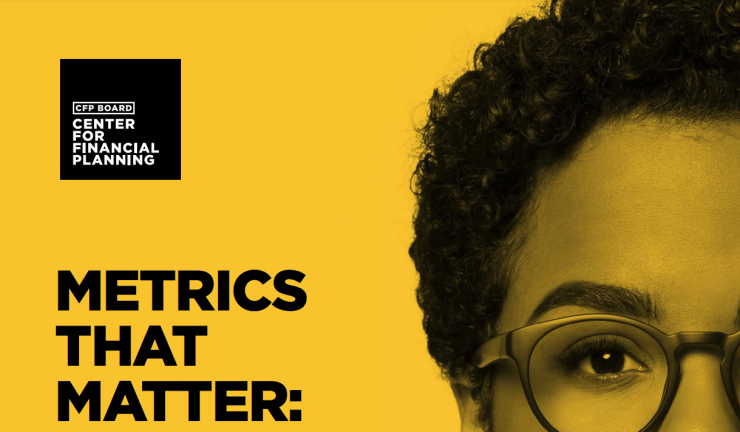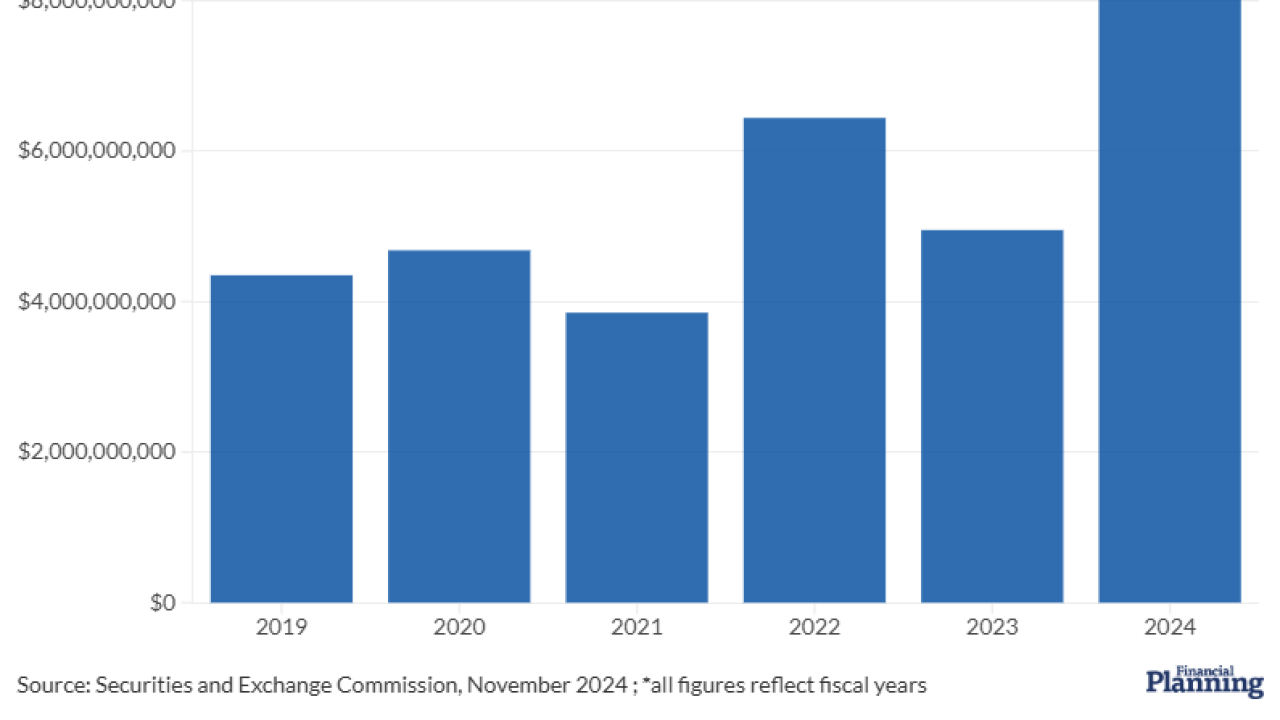As organizations and individuals in the world of wealth management continue working toward a more diverse industry,
They also want those pushing for change to know that they are not alone.
The financial services industry is in the midst of a slow but significant shift after a status quo that persisted for generations and contributed to the percentage of minority advisors relative to the rest of the profession hovering in the low single digits. That said, the
But with so much change happening all at once, tracking progress and measuring success can be overwhelming.
Harris, director of diversity & inclusion for the Center for Financial Planning, said the Center’s latest report is full of examples proving you’re not alone there, either.
“We're striving for perfection. But we're not perfect,” Harris told Financial Planning. “I think we realize that there are many rows to sow, so to speak, and we really encourage everyone to start from where they are.
“We don't expect everyone to hit a home run as soon as they pick up the bat.”
The Center for Financial Planning on Wednesday published a new thought leadership report that aims to serve as a resource for those committed to greater diversity. The 69-page document, titled “Metrics That Matter,” is a compilation of five articles written by industry pros and academics covering best practices when incorporating metrics into DEI work.
Harris said the report was born from panel discussions that took place on day one of the
She added that the document captures the passion and spirit of the discussions that took place last fall and that can aid organizations long into the future.

“The commonality across all five of the articles is that you have to have a goal in mind, and you have to have a mechanism to track your progress that can evolve over time,” Harris said. “What was used as a measuring model last year may need to be improved upon for this year or beyond.”
Harris is also a proponent of “knowing what you don’t know,” stating that finance pros can rely on the good work already being done inside and outside of the industry to come up with a plan that works for them.
The key, she said, is just to get started because the greatest threat to progress is inaction.
“There is a very comprehensive body of work that already exists that you can leverage so you don't need to start from square one,” Harris said.
Included in the “Metrics That Matter” report are articles from Ella Bell Smith of Dartmouth College; Stefanie Johnson of the University of Colorado; Crystal Cox and Laura Barry of Wealthspire Advisors; Lisa Shalett, Emily G. Thomas, Adriane Parris, Steve Edwards and Emily M. Feczko of Morgan Stanley; and Rachel J. Robasciotti of Adasina Social Capital.
The articles focus on topics like self-awareness when establishing leadership metrics, creating a framework for DEI metrics, what a firm’s diversity efforts look like from the inside, monitoring progress and reevaluating due diligence processes through a DEI lens.
The report also explains that the heightened desire to make and track progress is coming at a critical time.
As the world continues to climb out of the depths of the pandemic, there is a greater need for ethical and sound personal financial advice. According to the Center for Financial Planning, 78% of CFP professionals reported an increase in the volume of client inquiries as COVID-19 began to reshape their daily lives.
“The growing demand for financial planning, coupled with a financial planner workforce that continues to age and retire, underscores the importance of recruiting and welcoming new colleagues,” CFP Board CEO Kevin R. Keller and Center for Financial Planning Managing Director D.A. Abrams wrote in the report’s introduction. “Women and people of color have always been underrepresented in the financial planning profession, but we can work to change this reality moving forward.
“This moment, in which many of these communities have been disproportionately affected by the pandemic, provides a crucial opportunity for us to be intentional in our outreach to underrepresented communities.”
Harris believes that every piece of information in the compilation is important, and she hopes interested parties will take their time with it considering the significant breadth and the depth of information.
She also reiterated that the strive for perfection does not require people to be perfect right now. Harris referenced Wealthspire’s article in the report as a prime example, noting that the firm was aware of the hurdles that come with being an organization that is still in the early stages of the DEI process.
“They acknowledged that when they initially began this journey … they were primarily focused on gender diversity. And then at some point along the process, they realized they were not even engaging and discussing other areas of diversity like racial and ethnic diversity,” Harris said. “And those are not the only areas of diversity, to be clear. But they realized, given where they were from a representation perspective, that those were areas that were underrepresented. So rather than saying ‘shame on us for not addressing this,’ they have expanded the work that they were doing on the gender diversity front to also engage some of those same practices on racial and ethnic diversity.”
The report concludes with a call to action. The writers urge readers to uplift and support people of color in all facets while acknowledging that the burden “cannot and will not be carried by people of color alone.”
“We especially need allies to step in and dismantle structural barriers that prevent us from developing a diverse, inclusive and equitable workforce,” the report says. “As we’ve seen throughout our work together, the journey toward a more diverse and inclusive workforce is a marathon, not a sprint. We need to put in the work, day in and day out. Many of the changes will result in gradual and intangible differences that may not be perceived at first glance. But we must not be discouraged by incremental changes; we must remain steadfast in our commitment to sustain actions that will contribute to a more diverse and inclusive profession.”
Harris shares a similar message with her industry peers, stressing that the publication of this report isn’t reaching a finish line.
Instead, it is another fresh start in what is an ongoing process.
“It's very encouraging and fulfilling, both personally and professionally. I've worked in the D&I space for many years, so when you see like-minded people come together with a common goal, it just gives you another boost of energy,” she said. “It truly is a journey … if there was a mistake you made or something that you said or did in the past that may not be in alignment with where you are now, acknowledge it, own it and keep moving forward.”








